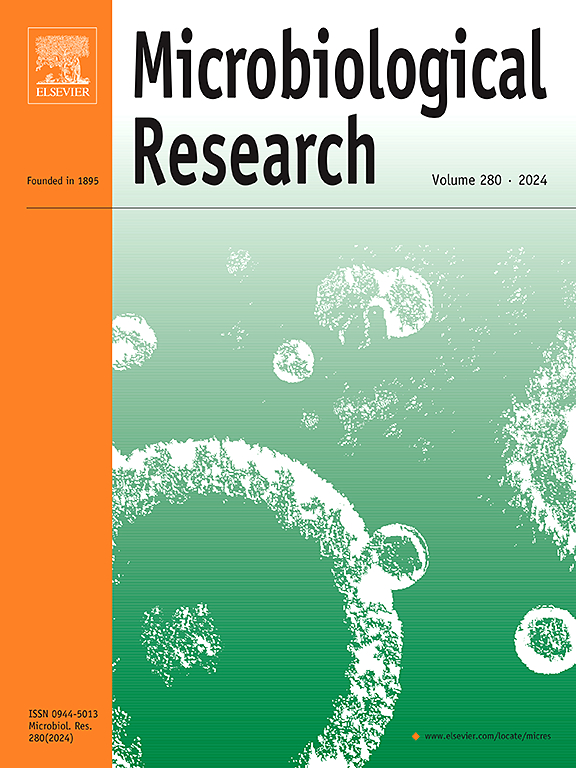Thrombospondin-1 modulation by Bifidobacterium spp. mitigates lung damage in an acute lung injury mouse model
IF 6.9
1区 生物学
Q1 MICROBIOLOGY
引用次数: 0
Abstract
Summary
Our study shows that Bifidobacterium spp. supplementation reduces lung damage in acute lung injury by enhancing immune cell activity and restoring thrombospondin-1 levels, offering a promising therapeutic approach for the treatment of ALI/ARDS.
Background
Acute lung injury (ALI) and acute respiratory distress syndrome (ARDS) are critical conditions characterized by severe lung inflammation and damage, often exacerbated by mechanical ventilation. Probiotics, particularly those containing Bifidobacterium spp. (Bifidus) have shown promise in modulating immune responses and reducing inflammation.
Methods
In this study, we investigated the effects of Bifidus supplementation in a mouse model of lipopolysaccharide induced ALI and ventilator-induced lung injury.
Results
Our results demonstrate that Bifidus significantly ameliorates lung injury by enhancing efferocytosis and reducing pro-inflammatory cytokine levels. Single-cell RNA sequencing revealed significant changes in lung immune cell populations, particularly macrophages and monocytes, which showed increased efferocytosis activity and modulation of key signaling pathways such as TNF, MAPK and TLR. Notably, Bifidus feeding restored thrombospondin-1 levels in lung tissue, facilitating clearance of apoptotic cells and promoting resolution of inflammation.
Conclusions
Overall, our study highlights the potential of Bifidus as a therapeutic strategy to mitigate lung injury in ALI/ARDS.
双歧杆菌调节血栓反应蛋白-1减轻急性肺损伤小鼠模型的肺损伤
您的研究表明,补充双歧杆菌可以通过增强免疫细胞活性和恢复血小板反应蛋白-1水平来减少急性肺损伤,为治疗ALI/ARDS提供了一种有希望的治疗方法。急性肺损伤(ALI)和急性呼吸窘迫综合征(ARDS)是以严重的肺部炎症和损伤为特征的危重疾病,机械通气往往会加重。益生菌,特别是那些含有双歧杆菌的益生菌在调节免疫反应和减少炎症方面显示出了希望。方法在本研究中,我们研究了补充双歧杆菌对脂多糖诱导ALI和呼吸机诱导肺损伤小鼠模型的影响。结果我们的研究结果表明,双歧杆菌通过增强胞浆功能和降低促炎细胞因子水平显著改善肺损伤。单细胞RNA测序显示,肺免疫细胞群,特别是巨噬细胞和单核细胞发生了显著变化,显示出efferocytosis活性的增加以及TNF、MAPK和TLR等关键信号通路的调节。值得注意的是,双歧杆菌喂养恢复肺组织中血小板反应蛋白-1的水平,促进凋亡细胞的清除,促进炎症的消退。总之,我们的研究强调了双歧杆菌作为减轻ALI/ARDS肺损伤的治疗策略的潜力。
本文章由计算机程序翻译,如有差异,请以英文原文为准。
求助全文
约1分钟内获得全文
求助全文
来源期刊

Microbiological research
生物-微生物学
CiteScore
10.90
自引率
6.00%
发文量
249
审稿时长
29 days
期刊介绍:
Microbiological Research is devoted to publishing reports on prokaryotic and eukaryotic microorganisms such as yeasts, fungi, bacteria, archaea, and protozoa. Research on interactions between pathogenic microorganisms and their environment or hosts are also covered.
 求助内容:
求助内容: 应助结果提醒方式:
应助结果提醒方式:


